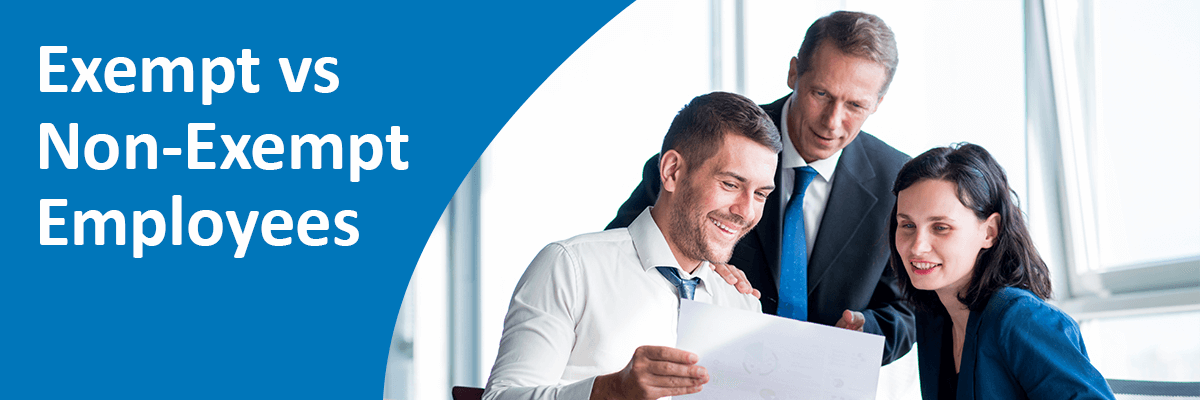There are a variety of employees in organizations. There may be regular employees, temporary employees, independent contractors, interns, workers undergoing on-the-job training, foreign workers etc. There are separate State, Federal as well as FLSA laws that regulate the remuneration of these workers.
Broadly speaking, the FLSA deals with exempt and non-exempt workers. This classification is based mainly on the job profile. The FLSA or Fair Labor Standards Act recognizes three categories of workers to be exempt workers. These are Executive, Administrative, and Professional people.



To get a better understanding, let us give you a fair idea about Exempt vs Non-Exempt employees.
Exempt Vs Non-Exempt Employee
- Exempt employees are those whom the employer is NOT bound to pay overtime pay at the rate of 1.5 times their regular pay. The idea of Exempt vs Non-Exempt employees revolves around this.
- Employers must pay a salary to the exempt employees. They cannot employ such employees on hourly wages. Moreover, these employees must be paid at least $455 per week.
- The most important aspect of a worker being billed as an Exempt employee is that he or she must be working in Executive, Administrative or Professional capacity. Salespeople, as well as those in the field of Science, Technology, Engineering, and Math, are also considered to be Exempt. However, it is the job profile rather than the job title that determines the capacity of a worker.
Guidelines for Exempt and Nonexempt Employees
Exempt employees need to meet some guidelines to enjoy the benefits of this category.
- Executive employees under the Exempt category must primarily manage an enterprise or division or department of the enterprise. They should be in such a position that they direct at least two employees to their work. They must also have the authority to hire and fire. At least they must have the authority to recommend hiring or firing or even changing the status of an employee.
- Administrative employees under the Exempt category must primarily perform office job or job of non-manual nature directly related to general business operations or serving customers. They must have the authority to exercise discretion and independent judgment with respect to significant matters related to the conduct of operations.
- Professional employees under the Exempt category must be working in roles that require advanced knowledge in the field of science and technology. Such learning is usually acquired by specialized, prolonged and intellectual instructions as well as study such as computer analytics, teaching and engineering etc
- Employees other than exempt employees need to be paid overtime pay at the rate of 1.5 times their regular pay. This is mandated by FLSA. These are non-exempt employees. Guidelines for these employees have also been incorporated into some state laws. Some states have also expanded the scope and amount of overtime pay. For rules relating to your state you can check with your State Labor Department’s website.
To be eligible for overtime pay you need to work more than 40 hours a week. You must also be paid the federally mandated minimum wage of $7.25 per hour in regular time.


